Here are the Code examples of this chapter. You can compile them online right on this web page by pressing the Typeset / Compile button. You can also edit them for testing, and compile again.
For a better view with the online compiler, I sometimes use \documentclass[border=10pt]{standalone} instead of \documentclass{article}. Instead of having a big letter/A4 page, the standalone class crops the paper to see just the visible text without an empty rest of a page.
Any question about a code example? Post it on LaTeX.org, I will answer. As forum admin I read every single question there. (profile link).
Splitting the input
Preamble file:
% !TEX none
\usepackage{lmodern}
\usepackage{microtype}
\usepackage{natbib}
\usepackage{tocbibind}
\usepackage{amsmath}
\usepackage{amsthm}
\newtheorem{thm}{Theorem}[chapter]
\newtheorem{lem}[thm]{Lemma}
\theoremstyle{definition}
\newtheorem{dfn}[thm]{Definition}
Chapter 1:
% !TEX none
\chapter{Equations}
\section{Quadratic equations}
\begin{dfn}
A quadratic equation is an equation of the form
\begin{equation}
\label{quad}
ax^2 + bx + c = 0
\end{equation}
where \( a, b \) and \( c \) are constants and \( a \neq 0 \).
\end{dfn}
Chapter 2:
% !TEX none
\chapter{Equation Systems}
\section{Linear Systems}
...
\section{Non-linear Systems}
...
Main document:
\documentclass{book}
\input{preamble}
\begin{document}
\tableofcontents
\include{chapter1}
\include{chapter2}
\end{document}
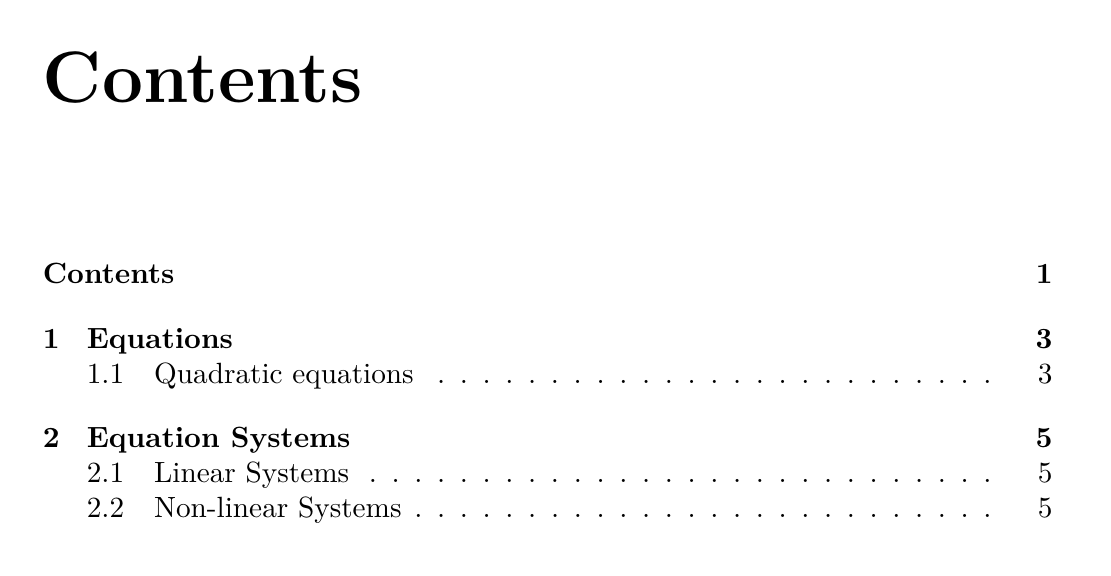
Figure 11.1
Creating front and back matter
Dedication file:
\chapter{Dedication}
This book is dedicated to one of the greatest mathematicians of
all time: Carl Friedrich Gauss. Without him, this book wouldn't
have been possible.
Proofs file:
% !TEX none
\chapter{Proofs}
...
Main document:
% !TEX bibtex document
\documentclass{book}
\input{preamble}
\input{example}% only here on the website to create the example.bib file
\begin{document}
\frontmatter
\include{dedication}
\tableofcontents
\listoftables
\listoffigures
\mainmatter
\include{chapter1}
\include{chapter2}
\backmatter
\include{proofs}
\nocite{*}
\bibliographystyle{plainnat}
\bibliography{example}
\end{document}
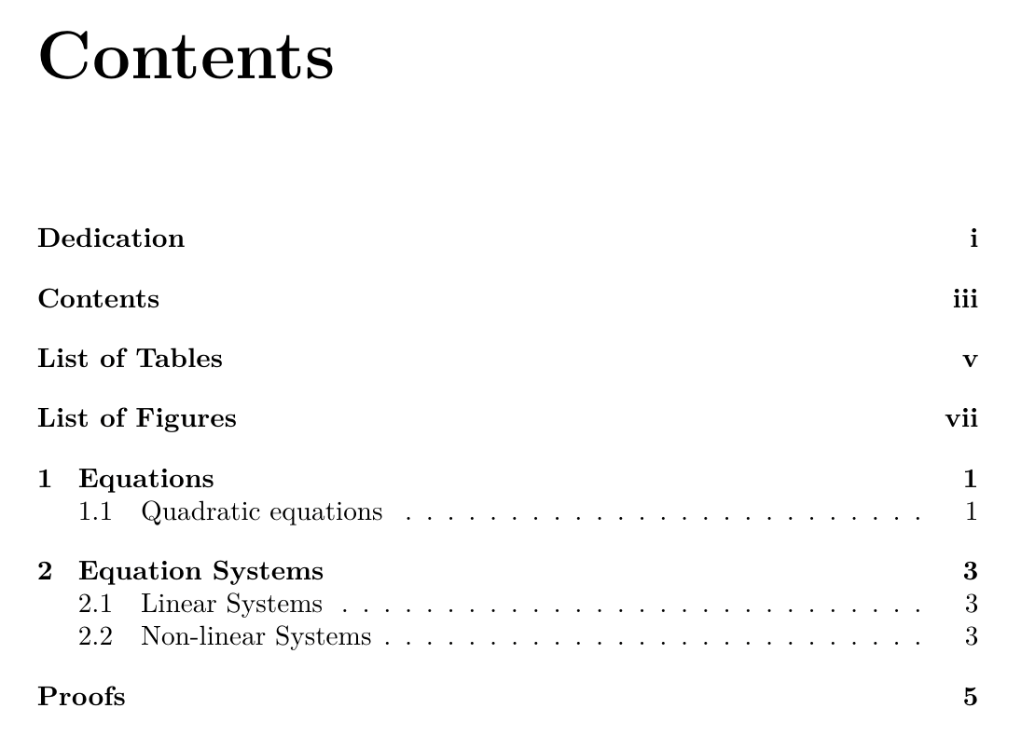
Figure 11.3
Designing a title page
Title file:
% !TEX none
\begin{titlepage}
\raggedleft
{\Large The Author\\[1in]}
{\large The Big Book of\\}
{\Huge\scshape Equations\\[.2in]}
{\large Packed with hundreds of examples and solutions\\}
\vfill
{\itshape 2011, Publishing company}
\end{titlepage}
Main document:
% !TEX bibtex document
\documentclass{book}
\usepackage[a5paper]{geometry}% could go to the preamble instead
\input{preamble}
\input{example}% only here on the website to create the example.bib file
\begin{document}
\frontmatter
\include{title}
\include{dedication}
\tableofcontents
\listoftables
\listoffigures
\mainmatter
\include{chapter1}
\include{chapter2}
\backmatter
\include{proofs}
\nocite{*}
\bibliographystyle{plainnat}
\bibliography{example}
\end{document}
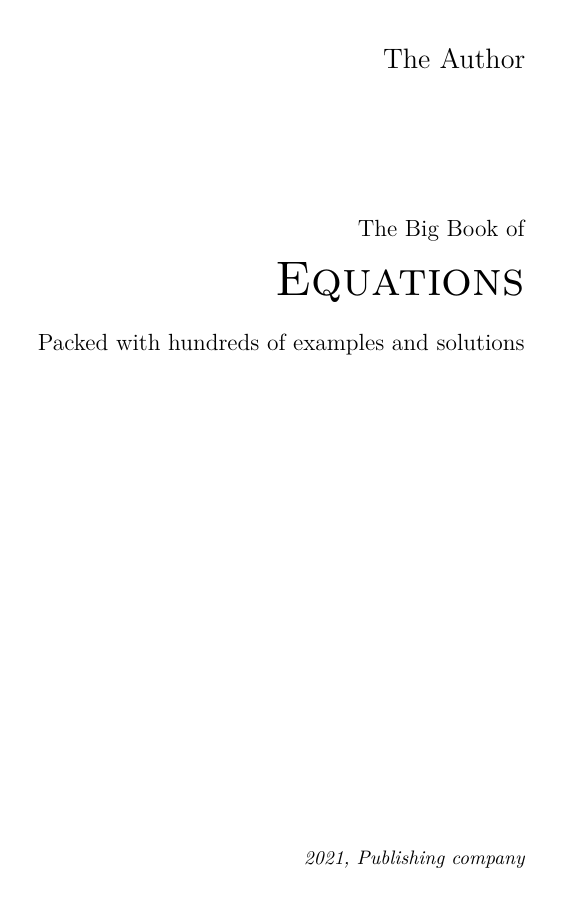
Figure 11.4
Working with templates
\documentclass[fontsize=12pt, paper=a4]{scrlttr2}
\usepackage[utf8]{inputenc}
\setkomavar{fromname}{My name} % your name
\setkomavar{fromaddress}{Street, City}
\setkomavar{signature}{Name} % printed after the \closing
\setkomavar{subject}{Invoice 1/2021} % subject of the letter
\setkomavar{place}{Place}
\setkomavar{date}{January 1, 2021 }
\begin{document}
\begin{letter}{Customer Name\\ Street No. X \\ City \\ Zipcode}
\opening{To whom it may concern} % eg. Hello
Text follows \ldots
\bigskip
\closing{With kind regards} %eg. Regards
\end{letter}
\end{document}
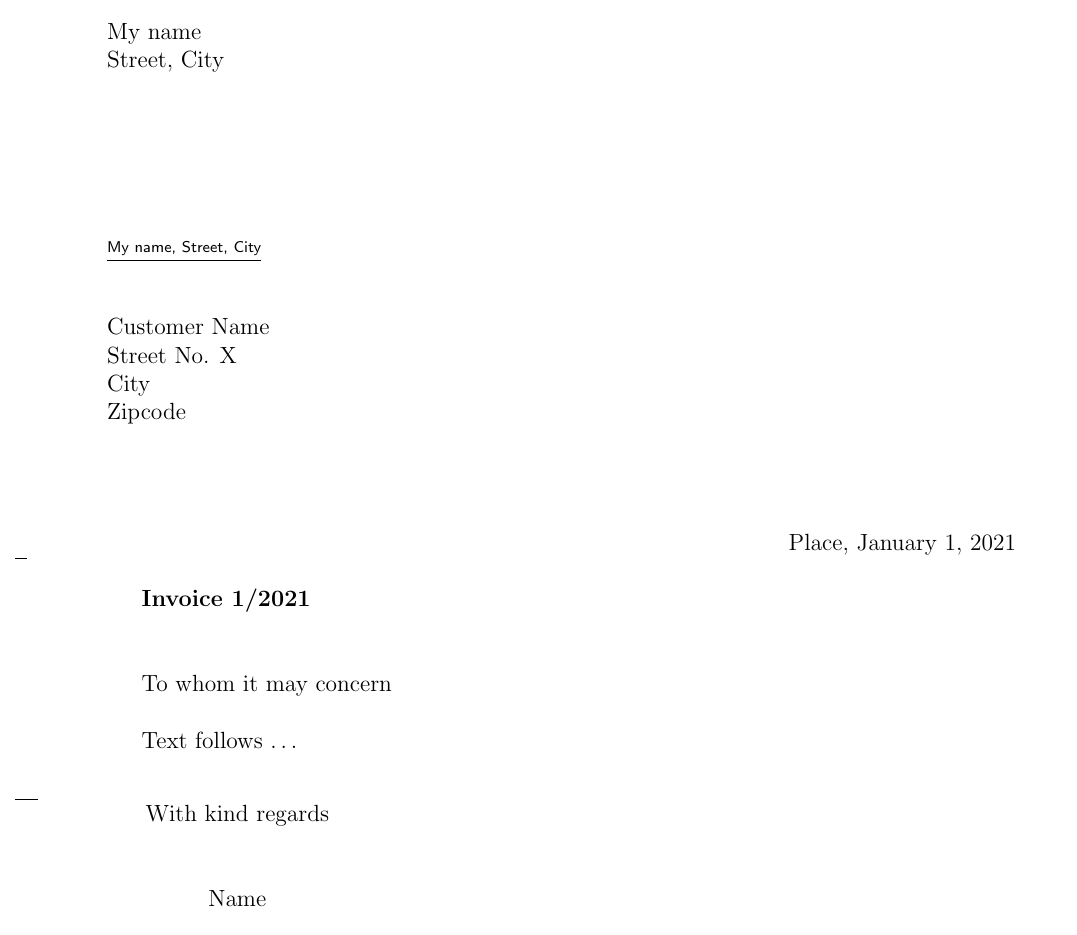
Figure 11.5
Working with dummy text / blind text
\documentclass{article}
\usepackage[english]{babel}
\usepackage{blindtext}
\begin{document}
\begin{abstract}
\blindtext
\end{abstract}
\Blinddocument
\end{document}
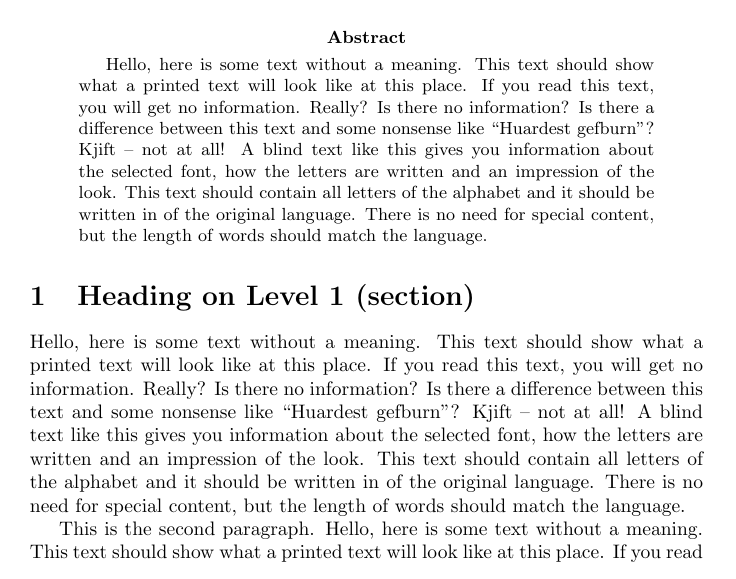
Figure 11.6
This code is available on Github. It is licensed under the MIT License, a short and simple permissive license with conditions only requiring preservation of copyright and license notices.
Go to next chapter.